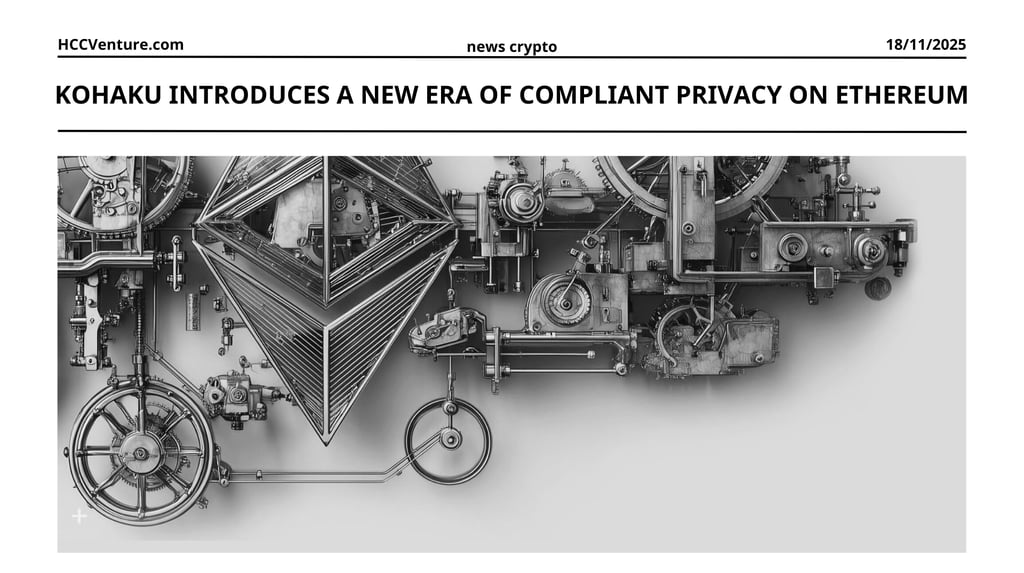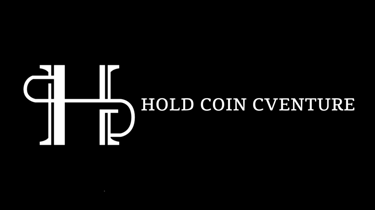Kohaku Ushers in a New Era of Compliant Privacy on Ethereum
Kohaku, a new open-source project, ushers in a new era of anonymous transactions and data privacy on Ethereum, allowing users to conduct legitimate transactions pseudonymously.
11/18/20252 min read


Kohaku anonymous trading?
A transformative development is taking place at the intersection of blockchain privacy and regulation. Kohaku, an open-source privacy system for Ethereum, has emerged with a bold promise to allow users to transact privately, anonymously, and legally on a public blockchain.
In a landscape of privacy tools that oscillate between complete transparency and illegal opacity, Kohaku introduces a third path—a zero-knowledge, regulatory-compliant privacy protocol designed to meet both user needs and regulatory standards.
This hybrid model could become one of the most important upgrades to Ethereum's financial infrastructure, especially as institutions, businesses, and high-value users increasingly demand privacy without legal repercussions.
Ethereum Transparency
Ethereum's default architecture exposes every transaction, balance, address, and historical interaction — creating an open ledger that is ideal for auditing but fundamentally incompatible with modern expectations of financial privacy.
High net worth users.
Institutional trader.
Treasury management.
Corporate payroll.
Powerful DeFi users.
The alternative — exchanges like Tornado Cash — offers comprehensive anonymity but lacks a compliance framework, ultimately leading to sanctions, shutdowns, and criminal prosecution.
This dichotomy has left Ethereum stuck in a privacy dilemma of being too transparent for real financial operations, but too afraid to use privacy tools due to regulatory risks. So Kohaku is designed to solve exactly that.
Unsupervised Compliance
Kohaku's architecture is built on zero-knowledge proofs (ZKPs) and a unique selective disclosure mechanism.
Make Transactions Anonymous: Funds are transferred through protected pools, where the sender, recipient, and amount are cryptographically hidden — but the protocol ensures that the source of the funds cannot be linked to an illegal source.
Providing Lawful Proof without Revealing Identity Users can create zk proofs that prove:
Funds are not linked to approved wallets,
Money is not money obtained from hacks, fraud or fake transactions,
Users comply with AML regulations without ever revealing their real identity or transaction details.
This transforms compliance from a form of monitoring to a form of cryptographic assurance. Unlike proprietary security systems designed for enterprises, Kohaku is completely transparent and auditable—a key requirement for organizations to adopt.
Evaluation and Conclusion
Kohaku brings a long-awaited but delayed solution: legal, anonymous, open-source privacy for Ethereum.
By combining zero-knowledge cryptography with regulatory alignment, Kohaku bridges the gap between privacy advocates and policymakers—and opens a new chapter where Ethereum can support both privacy finance and institutional participation.
In a changing global regulatory environment, Kohaku could become a model for how privacy works in decentralized finance.
Disclaimer: The information presented in this article is the author's personal opinion in the cryptocurrency field. It is not intended to be financial or investment advice. Any investment decision should be based on careful consideration of your personal portfolio and risk tolerance. The views expressed in this article do not represent the official position of the platform. We recommend that readers conduct their own research and consult with a professional before making any investment decisions.
Explore HCCVenture group
HCCVenture © 2023. All rights reserved.

Connect with us
Popular content
Contact to us
E-mail : sp_contact@hccventure.com
Register : https://linktr.ee/holdcoincventure
Disclaimer: The information on this website is for informational purposes only and should not be considered investment advice. We are not responsible for any risks or losses arising from investment decisions based on the content here.


TERMS AND CONDITIONS • CUSTOMER PROTECTION POLICY
ANALYTICAL AND NEWS CONTENT IS COMPILED AND PROVIDED BY EXPERTS IN THE FIELD OF DIGITAL FINANCE AND BLOCKCHAIN BELONGING TO HCCVENTURE ORGANIZATION, INCLUDING OWNERSHIP OF THE CONTENT.
RESPONSIBLE FOR MANAGING ALL CONTENT AND ANALYSIS: HCCVENTURE FOUNDER - TRUONG MINH HUY
Read warnings about scams and phishing emails — REPORT A PROBLEM WITH OUR SITE.
